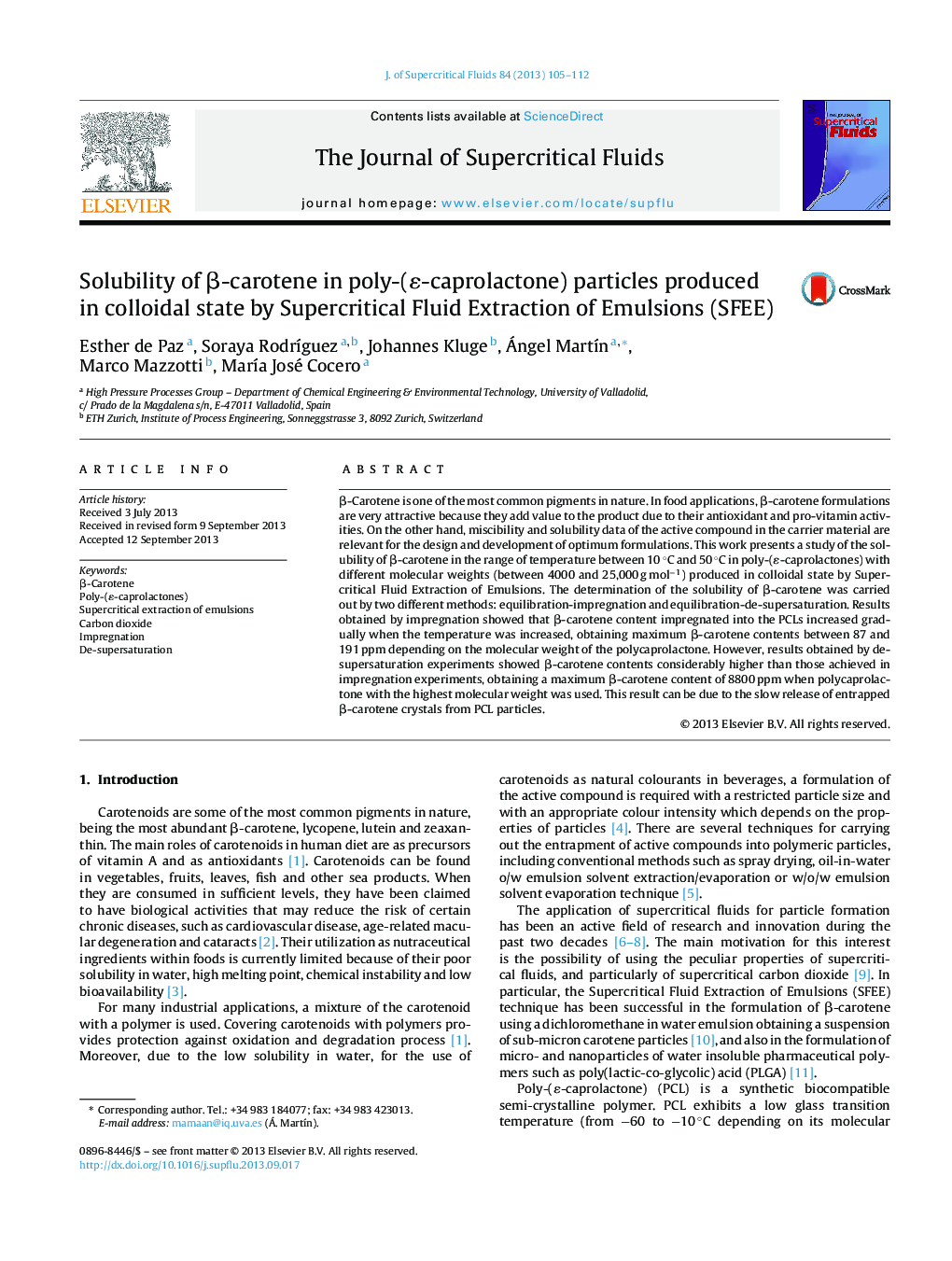| Article ID | Journal | Published Year | Pages | File Type |
|---|---|---|---|---|
| 230826 | The Journal of Supercritical Fluids | 2013 | 8 Pages |
•β-Carotene-loaded PCL particles of 200 nm were produced by SFEE.•β-Carotene concentrations up to 200 ppm were measured in impregnation experiments.•De-supersaturation assays yielded high β-carotene concentrations and slow release.
β-Carotene is one of the most common pigments in nature. In food applications, β-carotene formulations are very attractive because they add value to the product due to their antioxidant and pro-vitamin activities. On the other hand, miscibility and solubility data of the active compound in the carrier material are relevant for the design and development of optimum formulations. This work presents a study of the solubility of β-carotene in the range of temperature between 10 °C and 50 °C in poly-(ɛ-caprolactones) with different molecular weights (between 4000 and 25,000 g mol−1) produced in colloidal state by Supercritical Fluid Extraction of Emulsions. The determination of the solubility of β-carotene was carried out by two different methods: equilibration-impregnation and equilibration-de-supersaturation. Results obtained by impregnation showed that β-carotene content impregnated into the PCLs increased gradually when the temperature was increased, obtaining maximum β-carotene contents between 87 and 191 ppm depending on the molecular weight of the polycaprolactone. However, results obtained by de-supersaturation experiments showed β-carotene contents considerably higher than those achieved in impregnation experiments, obtaining a maximum β-carotene content of 8800 ppm when polycaprolactone with the highest molecular weight was used. This result can be due to the slow release of entrapped β-carotene crystals from PCL particles.
Graphical abstractFigure optionsDownload full-size imageDownload as PowerPoint slide
